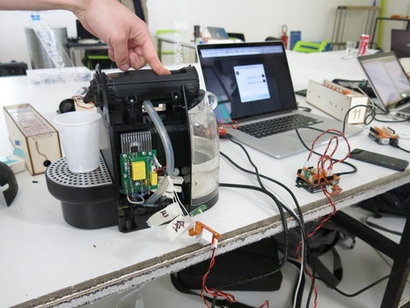
The findings come as the UK government is under pressure to embrace a ‘green’ recovery post-COVID. The report, which surveyed 2,000 UK adults, suggested that people prefer ‘powerful, but boring’ tech that solves real-world problems over flashy gadgets or novelties such as home robotics, virtual reality or home entertainment.
In tandem with the desire to reduce ocean plastics and carbon emissions, 41 percent of people specified that they would like to see an advance in renewable energies over the next decade. Smart meters, – which by law, will be in every home come 2024 - were praised by over 80 percent of people for adding value to their lives, due to their long-term potential to reduce energy use and CO2 emissions through better energy management.
On the other hand, interest in ‘headline grabbing’ technology was low. Just 15 percent of people surveyed expressed an interest in space tourism, and even fewer (11 percent) said that they want to see robotics carrying out domestic chores in their homes in the next decade. Only 19 percent of respondents are optimistic about the prospect of self-driving vehicles, but slightly more (22 percent) said they’d be open to introducing more smart technologies, such as voice assistants, into their homes.
“The results of our research suggest that consumers are keen to see technology being used to improve society as a whole and not just bring comfort in our life” said Stephen Magennis, UK Quality MD at Expleo.
“This topic is not new, but I think that the coronavirus pandemic has opened many people’s eyes to the transformative role technology can play in solving real-world problems, whether that’s streamlining the transition to remote working or accelerating innovation in the medical sector. Today’s businesses should not ignore this or they could face serious backlash from their consumers. More than ever, they need to focus on green technology and innovation to positively influence the planet. It is particularly true for businesses in the energy and mobility sectors: reducing carbon emissions and energy consumption, or driving electric vehicles, are top of consumers’ minds”.
Mr Magennis added that the new technologies must be developed and adopted in the right way if society is to reap the benefits, three key requirements being quality assurance, trust and security.
For additional information:

